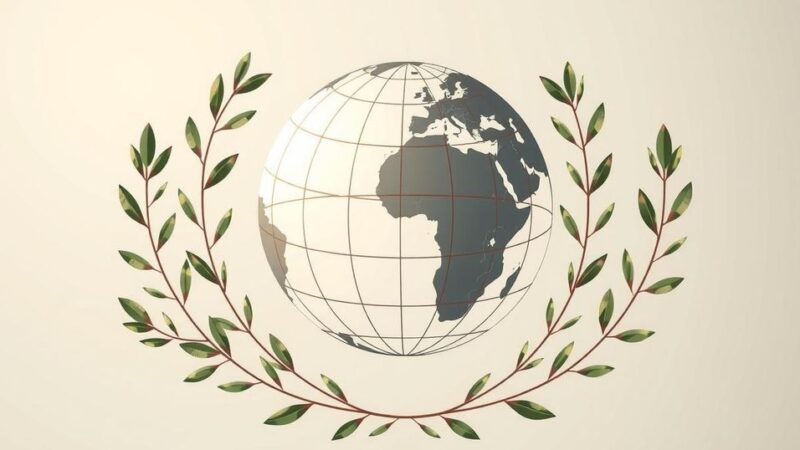The recent Ecuadorian election indicates a potential shift to leftist leadership with Luisa Gonzalez, backed by former president Rafael Correa, performing unexpectedly well against incumbent Daniel Noboa. With nearly equal votes, Gonzalez’s strong position raises alarms for U.S. interests and could reshape regional dynamics, particularly if she gains support from indigenous voters and maintains Correa’s agenda, challenging Noboa’s ability to govern effectively amid pressing issues.
Ecuador’s recent election outcome poses significant challenges for the United States and for democracy in Latin America. The leftist populist party, loyal to former president Rafael Correa, performed unexpectedly well, likely leading to a contentious runoff vote on April 13. Center-right incumbent Daniel Noboa secured 44.2% of the ballots, while Correa’s candidate, Luisa Gonzalez, garnered 43.9%, creating a virtual tie.
Gonzalez, closely aligned with Correa, exemplifies a shift toward leftist leadership, which raises concerns for the Trump administration and regional politics. She represents a continuation of Correa’s policies, noted for their alignment with leftist governments in Venezuela and Cuba. Predictions show that Gonzalez is poised to become an ally of the BRICS nations led by China and Russia.
Correa served as president from 2007 to 2017 but was sentenced to eight years in prison for corruption before fleeing Ecuador. His presidency was marked by a firm opposition to American influence and controversial policies, such as dismantling the U.S. anti-narcotics base in Manta and enabling organized crime through lax citizenship laws.
Political analyst Santiago Basabe emphasized Gonzalez’s strong position for the runoff, noting that together, the top two candidates accounted for nearly 90% of the vote in the initial round. He suggested that many supporters of the indigenous Pachakutik party would likely back Gonzalez, enhancing her chances of victory.
Jaime Durán Barba, a political consultant aligned with Noboa, expressed surprise at the first-round results, believing Noboa could ultimately prevail due to the diverse voting trends among Pachakutik supporters. He argued that despite their leader’s leftist ideology, the indigenous voters prioritize cultural identity over strict political affiliations, historically opposing Correa.
In the coming months, Noboa’s primary challenges include addressing rampant drug-related violence and managing an energy crisis, both urgent concerns for Ecuadorians. To secure re-election, Noboa must appeal to indigenous voters and demonstrate decisive action against violence while seeking diplomatic endorsements from the Trump administration and supportive regional allies.
Should Noboa fail to act swiftly, Gonzalez’s candidacy could triumph, potentially leading to a re-emergence of Correa’s leftist policies that many Ecuadorians nostalgically associate with economic prosperity during the oil boom. However, they often overlook the corruption and criminal infiltration that marked Correa’s governance, which could result in further complications for Washington and regional stability.
Ecuador’s upcoming runoff election is pivotal, as a victory for the leftist candidate Luisa Gonzalez would significantly alter the political landscape, posing challenges for the United States. With potential support from indigenous voters and a surge in popularity, Gonzalez could revive Correa’s policies, stirring concerns over increased leftism in the country. President Noboa must respond proactively to secure re-election and stabilize Ecuador before it becomes a major issue for U.S. foreign policy.
Original Source: buenosairesherald.com






